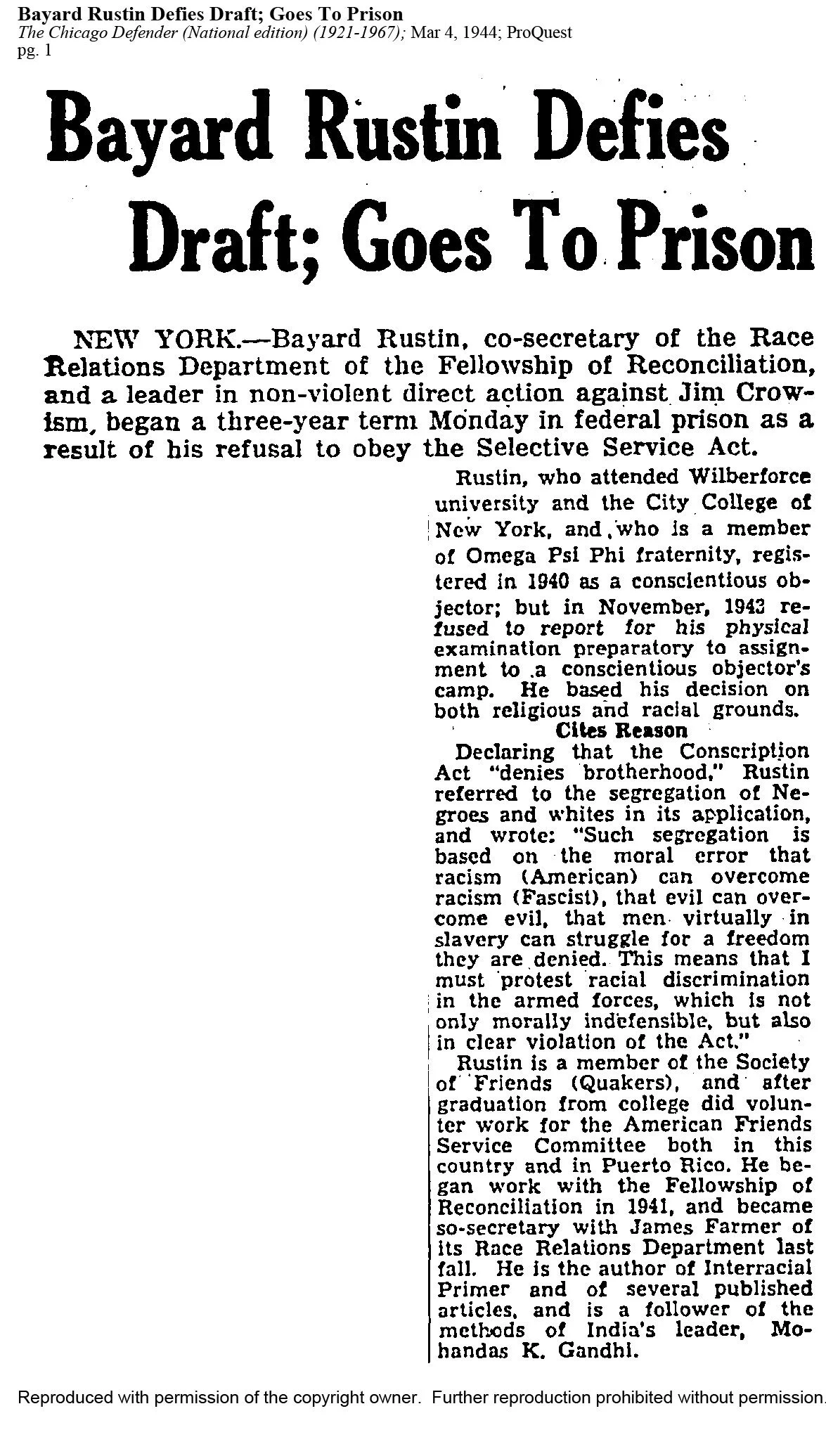A 1944 article from The Chicago Defender detailing Bayard Rustin’s principled refusal to comply with the World War II military draft based on his conscientious objection rooted in Quaker beliefs and commitment to nonviolence. The article highlights Rustin’s arrest and incarceration, his defense of civil liberties, and his rejection of both war and racial injustice. This early act of resistance marked the beginning of Rustin’s lifelong dedication to pacifism and civil rights activism, showcasing his courage during a period when draft evasion was heavily stigmatized and punished.
During World War II, Black conscientious objectors like Rustin faced a dual struggle against militarism and entrenched racial discrimination. Rustin’s refusal to serve challenged both the government’s war efforts and the segregationist policies prevalent within the armed forces and society at large. His imprisonment underscored the broader tensions between national security demands and individual conscience, particularly for African Americans whose patriotism was often questioned despite their sacrifices. Rustin’s stance foreshadowed his later leadership in integrating nonviolent resistance with racial justice advocacy.
"Bayard Rustin Defies Draft; Goes to Prison." 1944., Mar 04 The Chicago Defender (National Edition) (1921-1967), 1. https://login.ezproxy.princeton.edu/login?url=https://www.proquest.com/newspapers/bayard-rustin-defies-draft-goes-prison/docview/492714569/se-2.

